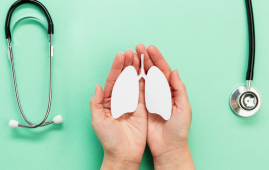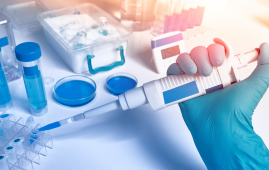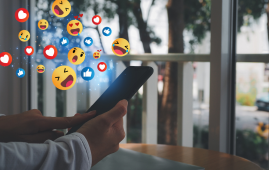For many people, living without technology would be like going back to the dark ages. Imagine for a minute a world without the internet. The global connectedness that we enjoy would be gone. In addition to effecting our everyday lives, technology has had a huge impact on healthcare.
Think about trying to tackle some of the daily tasks using manual labor. The time wastage and inefficiencies would be massive. Companies that rely on technology would have to resort to legacy systems. The impact on productivity would be immense. It is safe to say that there isn’t any sector or industry that does not see the benefits of technology. It could explain why adoption rates are on the rise. Up to 73% of companies are embracing the use of artificial intelligence (AI).
A further 71% are implementing blockchain technologies. Cloud adoption and legacy modernizations are 69% and 8%, respectively. In the case of healthcare, which is the topic of our conversation, adoption rates have seen a 38% increase from 2019. So, how has technology changed this sector?
For many people, living without technology would be like going back to the dark ages. Imagine for a minute a world without the internet. The global connectedness that we enjoy would be gone.
Think about trying to tackle some of the daily tasks using manual labor. The time wastage and inefficiencies would be massive. Companies that rely on technology would have to resort to legacy systems. The impact on productivity would be immense.
It is safe to say that there isn’t any sector or industry that does not see the benefits of technology. It could explain why adoption rates are on the rise. Up to 73% of companies are embracing the use of artificial intelligence (AI).
A further 71% are implementing blockchain technologies. Cloud adoption and legacy modernizations are 69% and 8%, respectively. In the case of healthcare, which is the topic of our conversation, adoption rates have seen a 38% increase from 2019. So, how has technology changed this sector?
1. Patients Have More Control Over Their Health
Patients have more control over their health, thanks to technology. You don’t have to rush to the doctor to check your blood levels, oxygen levels, or heartbeat. With a simple wearable device, that information is available where and whenever you need it.
Smart home devices can also make a huge difference. Think about the rooms that you spend the most time in. A living area is a place where family members congregate. Even smart bathrooms may very well become the next big trend. Imagine getting information on hydration status or blood pressure while brushing your teeth!
The integration of advanced sensors can provide means for measuring such health indicators. The sensors can be in or around the mirrors, bathtub, and toilets. Connection to digital platforms helps in the analysis and interpretation of such data. The results will help in trend identification and predictions about health issues.
Healthcare providers can then tailor-make and personalize the advice they give to clients. With smart technologies, the healthcare sector can transform from a reactive to a proactive system. Catching diseases early on allows for proactive measures thus allowing doctors to combat the further development of life-threatening conditions.
2. Data Improves the Future of Healthcare
One of the most critical components of technology is data. The healthcare sector churns out tons of such every single day. With technology, it is easier to manage the information. Healthcare providers also use the information to generate invaluable insights.
By its very nature, patient information is very sensitive. A significant challenge for healthcare providers is how to keep it safe. Keeping client information in physical folders and hard drives does not work. It is easy to gain access to the files, resulting in data breaches.
There is a perfect solution in the adoption of cloud technology. The administrators give privilege levels to only those who need to see the data.
Cloud technology allows for easy sharing of information. It doesn’t matter where the health providers are. Remote access is as simple as having the correct password and permission. For patients, it means faster handling of their health care concerns.
Innovations like encryption and blockchain are able to keep the data safe from third-party eyes. This is critical during the exchange of information from one party to another.
Data insights are also critical for the dispensation of drugs. Pharmacists can check patient history and look for trends within. It makes it easier for them to advise on the best dosages and how to take medication. The use of data removes the guesswork from the whole process.
3. Enhances Medical Training
Innovations like virtual reality and artificial intelligence are helping move healthcare forward. Med-school students are still able to get the experience without needing to touch a human body. Findings on the efficacy of using such technologies are pretty impressive. One major challenge facing training and health care is the lack of cadavers. With the covid-19, there was an interruption in the supply of corpses.
Yet, a cursory online search shows that the problem did not start in 2020. It has been an ongoing issue for many years. One thing we can all agree on is that the study of anatomy is vital for medical personnel. Technology has stepped in to provide a fantastic solution.
Virtual reality, for example, has improved learning in 74% of studies. 87% of VR trainees have higher accuracy in medical practices.
4. Multiple Uses of Artificial Intelligence
Artificial intelligence is broad in its offering within the healthcare sector. Machine learning (ML), for example, is proving quite beneficial. Specialists can predict the best treatment procedures based on treatment frameworks and individual characteristics. Natural language processing (NLP) is finding use in clinical documentation classification. The software can analyze and yield insights from unstructured clinical patient notes.
Healthcare providers get a better understanding of clients. They can then come up with improved methods for treating patients. Artificial intelligence allows for the processing of enormous data sets. The accuracy would not be achievable when using manual labor. Once the teams develop algorithms, the AI technology can identify any deviations. Faster processing time and reduced errors make AI almost critical in today’s healthcare environment.
Predictive analytics plays a significant role in diagnosis and treatment applications. We go back to our earlier point of providing proactive rather than reactive solutions. Indeed, artificial intelligence is also helping in areas like administration. The software can, for example, verify claims for medical health insurers. Overall, the quality of service is much better with such technologies.
Final Thoughts
Technology has and continues to have a significant impact on almost all aspects of our lives. It only makes sense then that the healthcare sector is a major beneficiary.
Data improves the quality of care. This is easier through the use of insights to determine the best treatment for patients.
Technology gives patients more control over their health. It also allows healthcare providers to be more proactive.











Leave a Comment